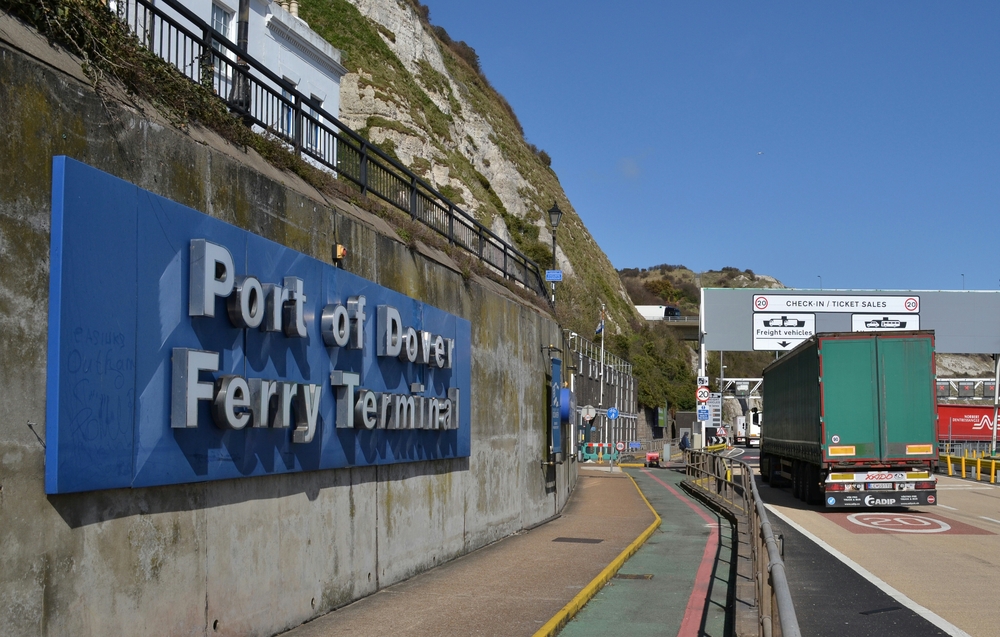Coronavirus lorry ban hits UK seafood exporters

The port of Dover has been closed to lorries and ferry passengers following a travel ban imposed by the French government on Sunday. The ban, in response to a surge in Covid-19 cases associated with a new strain of the virus, has hit seafood exports from the UK.
The ban applies to all ferry and Eurotunnel passengers, and “accompanied freight” – that is, all roll-on, roll-off lorries, the main form of transport for all fresh produce. Only unaccompanied freight – containers – is still entering and leaving the UK.
Kent Police have put Operation Stack in place to manage queued lorries, and part of the M20 motorway in Kent has been closed.
The Scottish Salmon Producers Organisation (SSPO) is calling for swift action by the UK Government to press for freight to France to resume.
Tavish Scott, chief executive of SSPO, outlined the imperative for the UK Government to address the situation: “We are deeply concerned by this extremely disruptive suspension of trade routes to France. Europe is a key market for Scottish salmon and we expect the government to explore all practical options for resuming trade, including the Covid-19 testing of drivers.
He added: “This is the busiest week of the year with more than 150 tonnes of fresh Scottish salmon a day crossing the Channel to Europe. Without a resumption of trade, the Scottish salmon sector could lose £6.5 million in the days before Christmas.
“Plans for Operation Brock to prioritise perishable goods must be brought into action. That could help to alleviate some of the disruption.
“Meanwhile, it is evident that the UK Government must seek an agreement to extend the Brexit transition period. This is the only pragmatic step to take during this unprecedented turn of events with Covid-19.”
In a typical December around 3,800 tonnes of whole, fresh/chilled salmon worth £28 million is exported to the EU. On average, more than 150 tonnes of whole, fresh Scottish salmon are en route to the EU every day.
The SSPO estimates that if travel is suspended between now and Christmas, it will mean more than £6.5 million worth of Salmon will not reaching the European market. Other salmon products like fillets, sides of salmon and smoked salmon account for £10 million in sales in December, approximately £400,000 per day.
The Scottish Seafood Association (SSA) has urged the Government to compensate its members over the border closure. Chief Executive Jimmy Buchan described the move as a “disaster” for companies that had already been hard hit by the first wave of the Covid-19 pandemic in March.
He said: “Not just for the sake of SSA members, but for the millions who enjoy our world-class seafood across Europe, we call upon the French, at the very least, to allow perishable goods to flow. These few days in the run up to Christmas is hugely busy for a lot of our members, with seafood destined for all parts of the Continent going via France.
“Traditionally in Spain, seafood is a major part of Christmas Eve, and most of our exports get there via the Eurotunnel or Dover-Calais routes, so it is a disaster for our members.”
The SSA says one relatively small company has £230,000 worth of live shellfish stuck at the border, with a further £250,000 worth ready to go, while another has £500,000 worth at Dover, and an additional £750,000 ready for despatch.
A number of countries have also suspended flights to and from the UK, including Germany, Italy, Belgium, the Irish Republic, Switzerland, Turkey and Canada.
The new variant of Covid-19 is estimated to be up to 70 per cent more transmissible. There were 35,928 new cases reported in the UK yesterday, more than double the previous Sunday. Health Secretary Matt Hancock warned that the new variant was “getting out of control”.
The Pfizer vaccine for Covid-19, which the UK has approved for use, is continuing to arrive in the UK via container freight.

